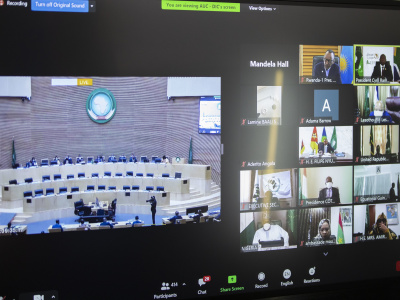
First Kenya, now Malawi: The challenge-annul-rerun pattern in African elections
Hardly any election takes place anywhere without some form of challenge to the results and fairness of the process. Following major elections on the African continent, frustrated voters and political parties often lodge formal complaints, generally with little result. But two decisive exceptions to this rule stand out: earlier this month, the constitutional court of Malawi invalidated last May’s controversial re-election of president Peter Mutharika; and in 2017 the Kenyan supreme court invalidated the re-election of president Uhuru Kenyatta. In both cases, the decision was final and required a rerun.
Reportedly, the Kenyan precedent encouraged the Malawian court. If that is the case, should we prepare for more and more elections overturned after results have been proclaimed, and unexpected reruns? What does this nascent trend mean for the prospects of democracy on the continent, and for election observers who are already often criticised for speaking too fast?
How to challenge an election
The Kenyan and Malawian cases are unprecedented because they combine three things: the court had authority to call foul on the whole election; it used this authority and its ruling stood despite high-level political resistance; and the ruling was implemented, leading to new elections (scheduled this summer at the latest in Malawi).
Further back in time, there were other precedents, but these just didn’t combine all three conditions. In 2010, the Ivorian supreme court ruled in favour of the incumbent Laurent Gbagbo, but challenger Alassane Ouattara won the ensuing civil war with backing from the international community. In the Tanzanian semi-autonomous archipelago of Zanzibar, in 2015 elections were annulled by the monitoring board, but without prejudice to the nation-wide results and the subsequent election of John Magufuli as president.
Other ‘near-precedents’ include Madagascar (2002), Nigeria (1993) and Algeria (1992), where decisive rulings were more controversial. In a myriad of other cases around the world, complaints lodged with election boards or low courts, whether successful or not, had no bearing on the overall validity of the election.
It remains to be seen if the rerun in Malawi will be a fairer election than the first one, or if it will follow the example of the Kenyan rerun, which was boycotted by the opposition in the absence of any guarantees of improvement. As this example shows, it is too easy to hail the recent successful challenges to elections as proof that judges are new counter-powers ensuring more democratic processes. Similarly, it is too easy to consider courts as always co-opted by one side or another, and simply another lever in the long list of methods for swaying an election.
However, one has to take into account that long-standing incumbents and leaders have had time to cultivate power networks that may reach all the way to election boards and high courts. But reported attempts to bribe the judges responsible for the Malawian electoral dispute show that courts can be a force to be reckoned with between, during and after elections.

Elections in Africa – Playing the game or bending the rules? ECDPM paper, Martin Ronceray and Bruce Byiers, October 2019
Drawing the lessons
Countries learn from one another’s experience, so it is good to prepare for more such cases. At this point in time, it is possible to draw some lessons from the nascent trend of overturned elections.
Judiciary influence over elections might displace the methods for rigging. For one thing, attempts at co-opting competent courts might become more prevalent, so scrutiny might need to be stronger. All the discrete methods for swaying an election listed above might become more frequent while the visible ones, that are more likely to justify court cases, are getting less prevalent – a trend we’ve already been observing for a while.
Most courts remain minor actors in African electoral processes when it comes to adjudicating results directly. In some places, challengers can only overturn the election if they prove that fraud decided the election result entirely (and not just to some extent). One may say that election-related lawsuits are more about vindicating voters and parties for some swaying tactics than about changing the end results.
Pending court cases increase uncertainty, since they extend the timeline over which parties compete for power. Over the past few weeks, court cases lodged by the opposition in Guinea Bissau failed to suspend the president’s swearing in, but they still remain to be adjudicated. While this can be a source of instability, the existence of a judicial recourse can also be considered an alternative to more dramatic responses such as mobilisation in the street.
In short, the main impact of court cases may be changing the way in which a past election is portrayed. Court decisions – or their absence – can grant some leverage to coalitions, or change the terms under which a post-electoral deal can be made. In the Gambia for instance, incumbent Yahya Jammeh filed two consecutive challenges to the election he lost in 2016. The judges were reluctant to consider his case, which paved the way for the 2017 ECOWAS military intervention to oust him.
This is particularly important for adjudication in international and human rights courts and regional bodies such as the East African Court of Justice. Unable to enforce their decisions, these courts reflect and shape the international perception of elections. To the extent that they can keep their independence from pressures of their member states, regional courts are some of the promising trends in regional integration in Africa.
Finally, with court decisions intervening up to several months after voting day, election observers have one more risk of being caught on the wrong side – of failing to detect some rigging and be accused of being partisan. In this context, it is as important as ever to stress that if international observers have a role to play alongside courts in election integrity, they still are only one piece of the puzzle.
The opinions are those of the author and not necessarily those of ECDPM.




